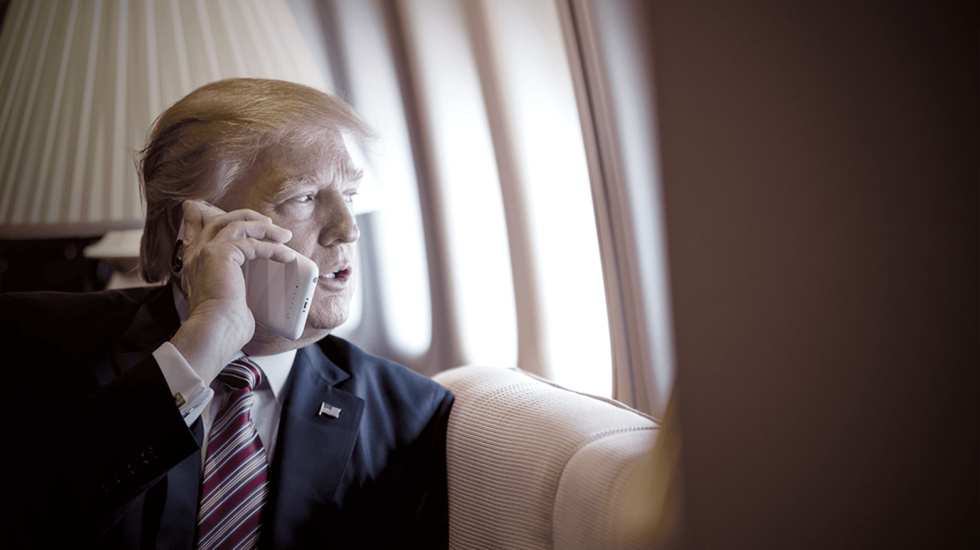Every year, leaders from around the globe gather at the World Economic Forum in Davos, Switzerland, to negotiate the rules of the global economy. Amid panel discussions, cocktail parties, and perhaps a few runs down the mountain, officials from the United States have historically used their platform at the Alpine resort to advocate for lower trade barriers, greater economic cooperation, fairer labor standards, and more support for entrepreneurial innovation. This year, however, the message coming out of Washington is very different. “Rather than touting the virtues of lowering economic barriers, Mr. Trump will promote the growing American economy and argue for foreign investment,” the New York Times reports.
To underscore the changed landscape, Trump on the eve of his trip levied tariffs against products such as solar panels and washing machines. “I’m going to Davos,” Trump explained, in announcing the new policy. “We’ll be talking about investing in the United States again, for people to come in and spend their money in the good old U.S.A.”
But of course, trade is a tricky thing, with overlapping and competing priorities that are often hard to untangle. So, for example, while the CEO of U.S. manufacturer Whirlpool hailed Trump’s new tariff regime, Goldman Sachs estimates that U.S. consumers can expect prices on washing machines to jump by between 8% and 20%.
Though critics of globalization have formed populist and nationalist movements all over the world, it’s striking just how blithely U.S. policymakers are rejecting the economic consensus past American administrations pushed so hard to create. While Trump was flying his protectionist flag, for example, Canadian prime minister Justin Trudeau was busy finalizing a deal to join the Trans-Pacific Partnership, a trade pact with Asian states that the U.S. initiated as a check on China’s influence. Trump pulled the U.S. out of negotiations and, now, some observers speculate China will join in America’s absence.
Meanwhile, Trump’s immigration policies could signal a longer-term shift towards isolation. Though the administration asserts that the president favors a “merit-based” system for entry into the U.S., in practice, the administration’s rhetoric and policies discourage immigration from places like India that typically supplied the U.S. with engineers, technologists, and other highly-skilled workers. The overall climate of hostility towards the foreign-born is blamed by some analysts for a noticeable drop in the number of international grad students coming to America. These globally-minded knowledge workers play a disproportionate role in key industries from biotech and pharmaceuticals to Silicon Valley start-ups, economists say.
The abrupt shift comes at a moment in modern American history when economic competition has never been greater; indeed, that competition fuels Trump’s MAGA worldview. It’s a philosophy that holds that, in economic matters, a zero-sum game obtains. If you’re not a winner, you’re definitely a loser. The modern ideal of trying to grow the overall size of the pie is, in this estimation, dangerously naive.
America’s copious post-war advantages still persist, of course, and trade policies such as Nafta undoubtedly hastened the shift of manufacturing jobs overseas, mortally wounding many working-class communities.
Still, America’s position as the undisputed leader of the global economy is arguably our greatest asset. It would be good to remember that this preeminent role is earned not inherited. The rest of the world is catching up to the U.S. and, on some key metrics, even eclipsing us. For the first time this year, for example, America fell off the list of the top 10 countries according to an annual ranking of global entrepreneurial and technological innovation. (South Korea led the way, followed by Sweden and Singapore.)
Whether the U.S. falls further still is hard to predict. But with each rejection by Trump of global trade and cooperation, it becomes ever more likely that rival economic powerhouses–from China to the EU and even Canada–will step in to fill Washington’s abdicated leadership role.



